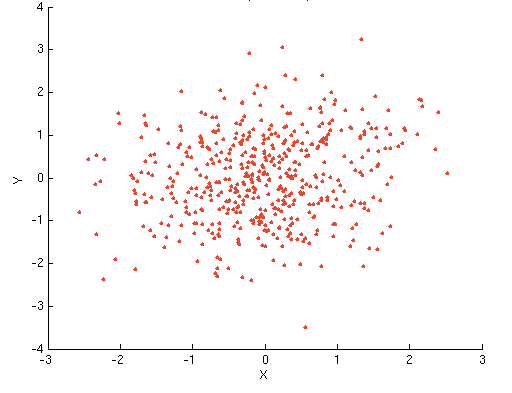Over the last few years, Ben and I have written over 700 articles in WorkPuzzle.
The subject and content of these postings has been quite varied. In fact, when we redesigned WorkPuzzle last year it was difficult to even arrange the articles into common categories.
I suspect if the topics were mapped on a statistical chart, the data would probably look uncorrelated. At close range, it would seem like a smattering.
Regardless of this perception, there is a plan and methodology to what we’ve written.
For a few minutes today, I’d like to challenge you to step back and look at WorkPuzzle from a more holistic perspective. Through this broader lens, I’ll reveal one of the most scientifically-backed, well-documented, and important business ideas ever discovered.
Our Belief About People and Organizations
Without exception, the most successful and attractive companies to work for are those who operate with a big picture understanding of how humans function at their best.
But, high-performing companies don’t stop there. They take it one step further.
Businesses can and should be used as a means to enable human flourishing.
The Absence of Human Flourishing
Without this overarching belief system, people are left to operate in a “values vacuum” when interacting with your organization.
Of course this applies to your management team, your employees, and your agents, but it also applies to your customers, partners, vendors, and anyone else connected with your company.
If your organization is operating in a values vacuum, your actions, decisions, and attitudes have no chance of demonstrating continuity or direction. A lack of direction creates emptiness at best, and chaos at worst.
Individuals operating in such a system are often confused. When there’s no framework from which to engage in the tasks they’re asked to accomplish, it makes people feel like they’re just filling a seat or following orders.
An environment void of purpose tends to produce joint exploitation—both the agent and the management pursue their own self-focused gain. No one truly feels attracted or connected to an organization that operates on such a shallow premise.
It makes attracting and retaining high-performers nearly impossible.
Developing Convictions
How do you keep this from happening in your company, office, or team? By discovering and articulating convictions that support the greater purpose of enabling human flourishing.
What do you believe about people?
The answer to this question is what we’ve been writing about in WorkPuzzle for the last few years, and it’s one of the most important questions you should ask yourself.
The answers need to become your convictions.
What are convictions? They’re firmly held beliefs that guide your actions and decision-making.
Developing and writing down a set of convictions about your responsibility as a business to enable human flourishing is one of the foundational pieces to becoming a great organization.
Organizations that fail to identify convictions, by default, operate in a values vacuum.
Conversely, organizations operating according to convictions develop strategies and business rules demonstrating their commitment to the greater purpose of enabling human flourishing.
What do you believe about people?
When individuals in and around your business know and resonate with your answer to this question, it becomes an incredibly powerful magnet to attract and retain the best people.
As a friend of mine recently reminded me, great organizations are always made up of great people.
Questions or Comments? Reply to your WorkPuzzle subscription email.
Didn’t get the WorkPuzzle email? Subscribe below. We promise not to share your email with others or use it for any other purpose but delivering WorkPuzzle notices.



